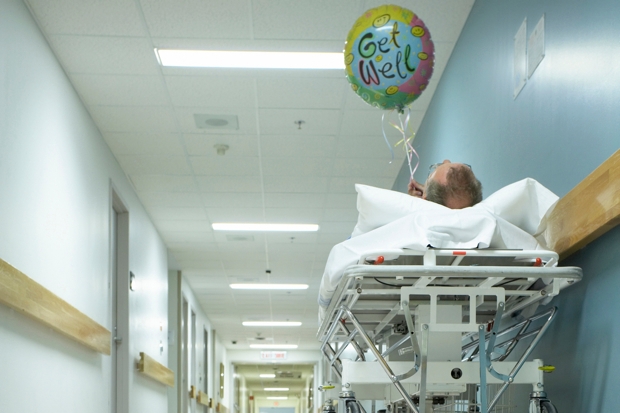Everyone understood the government message in March 2020 to stay at home, protect the NHS and save lives. Yet the lives that we knew were being saved were ones from Covid-19. Anything more long-term than daily figures never registered. The concept of other causes of death – most devastatingly cancer – were secondary concerns. We may be about to see the consequences of this Covid solipsism.
The recent cross-party parliamentary report “Catch Up With Cancer – The Way Forward” showed that UK lockdowns had resulted in a staggering drop in cancer treatment. There were 350,000 fewer urgent cancer referrals in 2020, and 40,000 fewer cancer diagnoses, compared to 2019. These delays to diagnosis will lead to worse cancer survival rates, which were already mediocre compared to many Western countries.
Politicians, and plenty of scientists, like to talk as if there was only ever one option. But there was an alternative. In Sweden, where lockdown was less strict than the UK, there is evidence that patients with prostate cancer had their treatment protected during the first wave. While the number of new prostate cancer cases decreased by 36%, the number of patients treated by radical prostatectomies only fell by 3% compared to previous years and the number of patients having radical prostate radiotherapy actually increased by 32%. So how does the UK measure up against this?
Politicians, and plenty of scientists, like to talk as if there was only ever one option. But there was an alternative
The first wave saw a 43% reduction in patients undergoing prostatectomies for prostate cancer in the UK, a significant contrast to the 3% decrease in Sweden. These are devastating statistics. It is well recognised that delays in cancer treatment often lead lead to poorer prognoses. Any future assessment of the UK’s lockdown approach must include the devastating impact that lockdown has had cancer patients.
This backlog will take a long time to clear. There are more than 5 million people waiting to start NHS treatment. The divide between those who can and can’t afford private healthcare has seldom been starker. There are signs that more people are going private. By October 2020, London’s private hospitals reported a doubling in the number of patients prepared to pay for their own surgical procedures. Private insurers expected to see a long-term increase in demand as the NHS takes time to become fully operational again.
In the last 20 years, much effort and funding has improved cancer waiting times. UK cancer survival rates have improved, but at a reduced rate to many European countries. We had made substantial improvements in screening, diagnosis and treatment. But many of the gains achieved over years have been reversed in months.
There will also be increased pressure from patients and charities to tackle a growing divide between NHS and private healthcare in the coming years. That gulf has been accelerated by the government’s decision to allow the treatment of patients with serious and urgent conditions other than Covid to be curtailed during the first and subsequent lockdowns.
Covid-19 is not the only killer. Cancer continues to kill around 166,000 people annually in “normal years” – one shudders at the thought of the preventable deaths that will have been caused by lockdowns. Policymakers may like to tell the nation and themselves that there was no alternative, but there was. Cancer healthcare should never have been stopped. The data from Sweden shows that these patients could and should have been protected.
Professor Gordon Wishart is Chief Medical Officer at Check4Cancer and Visiting Professor of Cancer Surgery at Anglia Ruskin University.






Comments